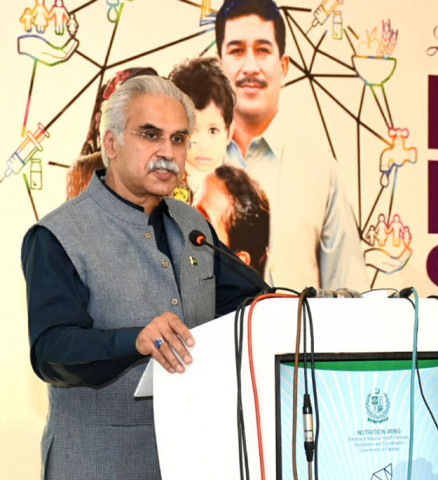WHO recommends patient safety standards
Dr Zafar Mirza says health mission’s roadmap will be followed

Dr Zafar Mirza - Special Assistant to the PM on Health. PHOTO: FILE
“Given the urgent need to address quality of care, patient safety, and infection prevention, we are pleased to accept the findings of the expert delegation and will work with WHO to implement the recommended actions and roadmap,” said Dr Mirza while talking to the delegation.
WHO Eastern Mediterranean Regional Office head Dr Mondher Letaief commended Dr Zafar Mirza for his efforts to improve the quality and safety of health services in Pakistan. “We are pleased that Pakistan is aspiring to join our regional movement on patient safety. WHO is committed to working with the national and provincial governments to implement the Patient Safety Friendly Hospital Initiative, develop a national policy and strategy for quality of healthcare, and improve infection prevention and control”
WHO to help set up model healthcare
“It is critical to make sure health services are safe for the people they serve, and what we have learned in England is that unsafe care usually happens because of problems with the system, not with health workers. I have submitted my recommendations and look forward to following the progress of Pakistan as government, health workers and communities work together to develop a culture of quality and safety,” said Donna Forsyth an expert in patient safety.
Quality and safety of health services is a critical issue for Pakistan. To address this, the delegation of WHO and international experts conducted a five day mission from July 8 to 12 to properly respond to the current challenging situation. The delegation visited hospitals in Islamabad, Lahore and Karachi,and met with senior health leaders including the federal health minister, health minister for Punjab, and health secretaries for Punjab and Sindh. They also held discussions with the Health Care Commissions of Punjab and Sindh.
The delegation shared its findings with Dr Mirza last week. According to the international experts, while health leaders and operational teams have expressed commitment to address quality and safety, many challenges should be given serious consideration and be effectively addressed.
The delegation said that priority areas requiring attention include compliance with evidence-based patient safety standards and norms like infection prevention and control, regulation and registration of healthcare providers and facilities, development of a hospital culture that promotes open discussion of safety issues, and the need to improve primary health care to reduce the number of patients using hospitals.
Published in The Express Tribune, July 17th, 2019.



















COMMENTS
Comments are moderated and generally will be posted if they are on-topic and not abusive.
For more information, please see our Comments FAQ